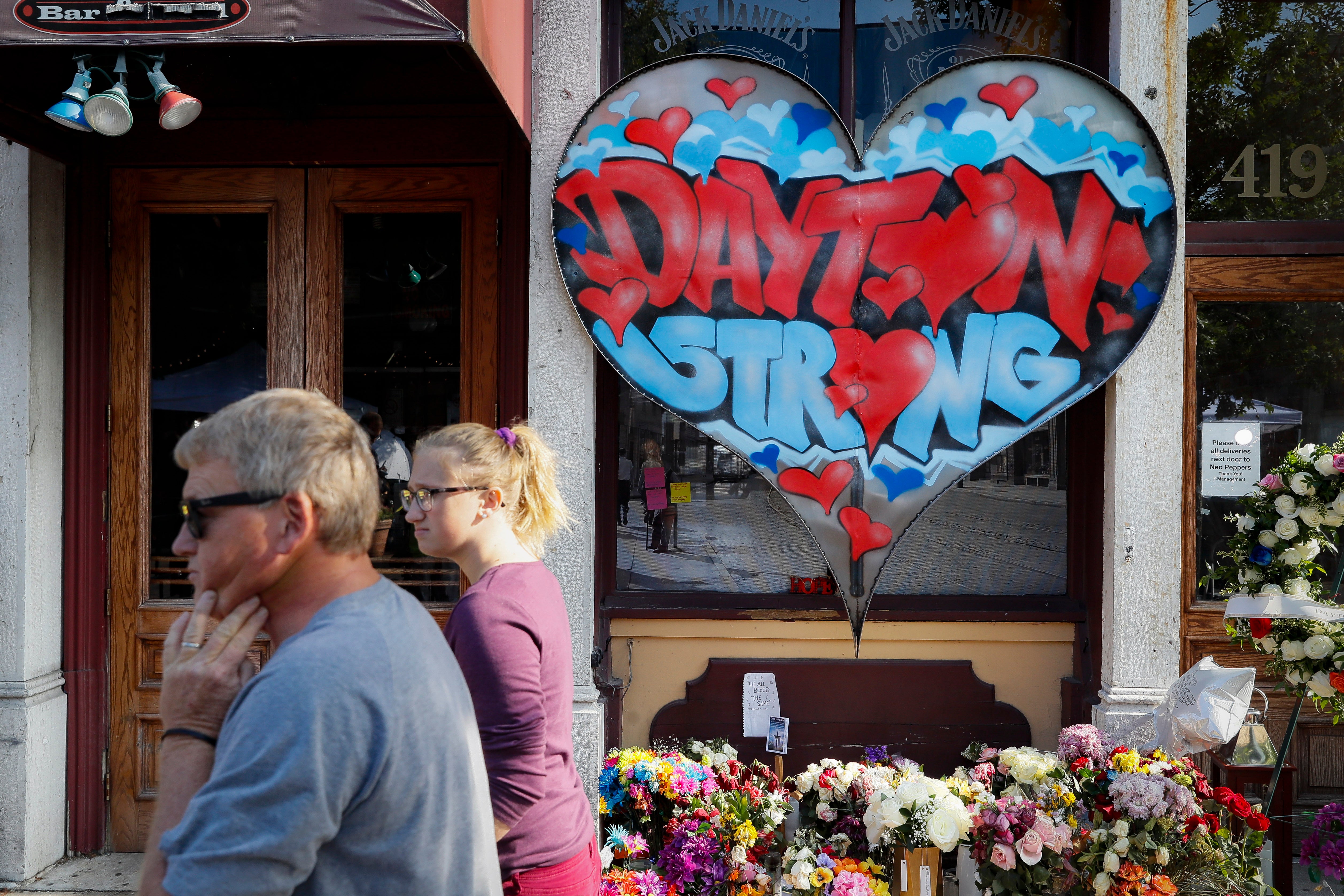Relatives of Dayton shooting victims sue gun magazine maker
Relatives of four people killed when a gunman opened fire in Dayton two years ago have sued the maker of a high-capacity magazine used by the shooter

Your support helps us to tell the story
From reproductive rights to climate change to Big Tech, The Independent is on the ground when the story is developing. Whether it's investigating the financials of Elon Musk's pro-Trump PAC or producing our latest documentary, 'The A Word', which shines a light on the American women fighting for reproductive rights, we know how important it is to parse out the facts from the messaging.
At such a critical moment in US history, we need reporters on the ground. Your donation allows us to keep sending journalists to speak to both sides of the story.
The Independent is trusted by Americans across the entire political spectrum. And unlike many other quality news outlets, we choose not to lock Americans out of our reporting and analysis with paywalls. We believe quality journalism should be available to everyone, paid for by those who can afford it.
Your support makes all the difference.The high-capacity magazine used by the man who gunned down nine people in Dayton two years ago serves no purpose other than allowing for the killing of as many people as possible, family members of four victims alleged in a lawsuit against the magazine maker.
The complaint filed Sunday in Nevada accuses magazine maker Kyung Chang Industry USA Inc., of deliberately marketing and selling 100-round magazines of the kind used by Dayton mass shooter Connor Betts in the Aug. 4, 2019, attack.
The company made and sold 100-round magazines fully aware they “have no or negligible utility for lawful uses of firearms but pose a tremendous risk to public safety because they are extremely effective and attractive for use in unlawful mass shootings,” the lawsuit said.
The magazine allowed Betts to fire 41 rounds in 32 seconds in Dayton's Oregon entertainment district before he was killed by police, according to the lawsuit.
The magazine's capacity “enabled the Shooter to transform the popular commercial district into a war zone, in seconds,” the lawsuit said.
The victims' relatives are seeking unspecified financial damages above $15,000 and a court order stopping the company from supplying high-capacity magazines “without reasonable safeguards to prevent their misuse.”
The complaint was brought by family members of shooting victims Derrick Fudge, Lois Oglesby, Logan Turner, and Beatrice Nicole Warren-Curtis.
Messages were left with the company Tuesday seeking comment on the lawsuit.
Betts was killed by police half a minute after he opened fire Aug. 4, 2019, in Dayton’s crowded Oregon District entertainment area. Armed with an AR-15-style gun with the extended ammunition magazine, Betts killed nine people, including his sister, and wounded dozens more.
After the shooting, high school classmates said Betts was suspended years ago for compiling a “hit list” of fellow students he wanted to harm. Two of the classmates said Betts had also been suspended after he came to school with a list of female students he wanted to sexually assault.
Police investigators said Betts had a “history of obsession with violent ideations with mass shootings and expressed a desire to commit a mass shooting.” The FBI said it uncovered evidence Betts “looked into violent ideologies.”
But authorities have also yet to identify a motive, or been able to say definitely whether Betts intended to kill his sister, Megan or if her death was inadvertent.
The Ohio Supreme Court rejected requests by the media, including The Associated Press, for copies of Betts' school records. The court said last year that state law didn't permit disclosure of such records without a student's consent and didn't make exceptions if the student was deceased.
Last month, the maker of the rifle used in the Sandy Hook Elementary School shooting offered some of the victims’ families nearly $33 million to settle their lawsuit over how the company marketed the firearm to the public.